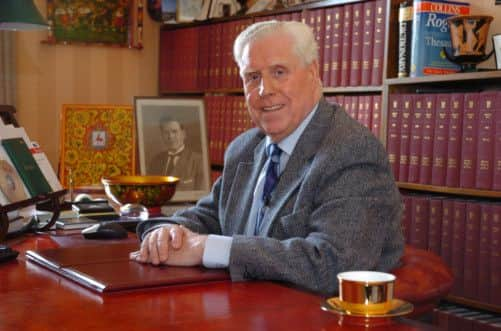McCluskey press regulation report ‘exceeded remit’


The group, headed by former High Court judge Lord McCluskey, went further than Lord Leveson’s own proposals by demanding compulsory regulation of all major newspapers instead of the voluntary approach south of the Border.
The recommendations prompted concerns that Scotland could be left with a stricter system than England and Wales, and raised questions about freedom of speech.
Advertisement
Hide AdAdvertisement
Hide AdThe McCluskey group even produced a draft bill paving the way to the creation of a separate Scottish regulator.


However, the SNP government is now poised to back a UK-wide scheme as part of the Royal Charter being implemented south of the Border.
Asked if the McCluskey group exceeded its remit, the Scottish Government’s Cabinet secretary for culture and external affairs, Fiona Hyslop, told Holyrood’s culture committee yesterday: “Yes – in terms of the compulsory system, most definitely.
“It’s a very valuable report and the points about Scots law are well presented.
“However, in terms of straying beyond a Leveson-compliant scheme which was voluntary,
I think that the report went beyond that.”
Ms Hyslop said her first reaction on reading the report was “concern about the compulsory element”, which is why the government did not “endorse” its findings in its initial response.
“To be fair to the expert panel, on page one of the report they do make it clear that the views were the views of the expert panel, but are not the views of the Scottish Government,” she added.
Lord McCluskey told MSPs last week that a mandatory system was needed because many major publishers had already indicated they would not take part in
Advertisement
Hide AdAdvertisement
Hide Adany Leveson-style regulatory system policed by a new watchdog created by the state and enshrined in law.
SNP ministers are in talks with opposition leaders about securing a “consensual” solution in Scotland.
The issue is devolved to Holyrood, but the Scottish Government is looking to sign up to a UK-wide scheme and has drafted amendments for the coalition government’s proposed Royal Charter in England and Wales which would see this extended north of the Border.
Leaders of Scotland’s main political parties will meet tomorrow to discuss the plans.
The Scottish Government has suggested a number of amendments to the UK government’s proposed Royal Charter to make it compliant with Scots law.
These include an addition on “appropriate respect” for people who have recently died.
That call follows complaints about press treatment from the family of Glasgow teenager Diane Watson, the 16-year-old stabbed to death at school by another girl in 1991.
Alan, her brother, killed himself 18 months later after reading derogatory articles about his dead sister.
Advertisement
Hide AdAdvertisement
Hide AdHer mother, Margaret Watson, appeared before MSPs yesterday.
Mrs Watson said yesterday: “There has certainly got to be some provision put in, hopefully in the Scottish Parliament, to give some protection and some rights to families who have lost someone. I hope this parliament will take it seriously.
“I’ve no doubt you are not going to implement defamation of the deceased. I’m quite aware of that with what I’ve been reading recently from the Scottish Parliament.
“But please put some provision in, where if you’ve got a complaint against the media, please allow us to present our evidence to some kind of
tribunal. It doesn’t have to be before a court, but as long as it’s independent.
“I can only implore the Scottish Parliament: please put something, some kind of provision in, where we can present our evidence in person.”